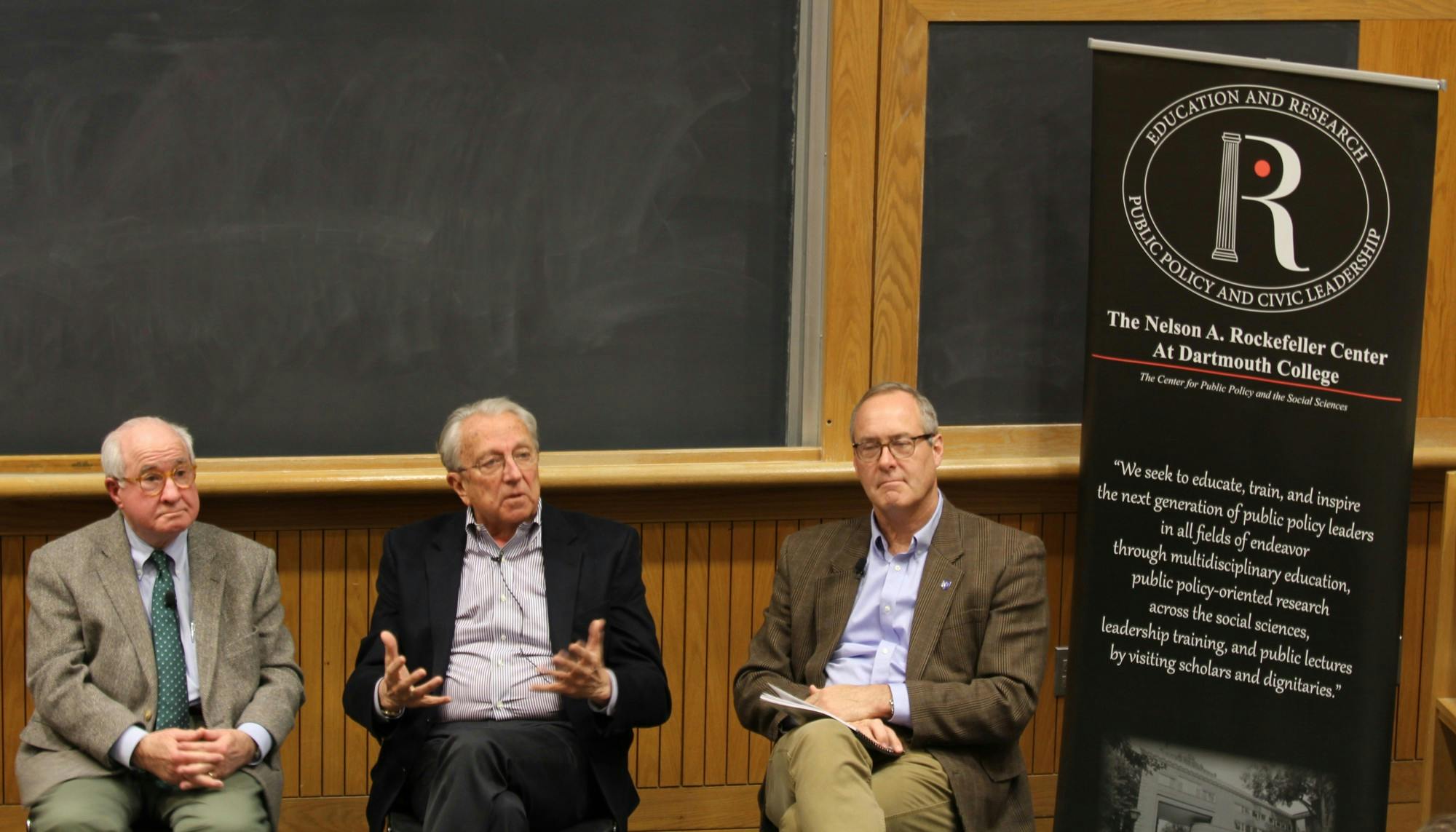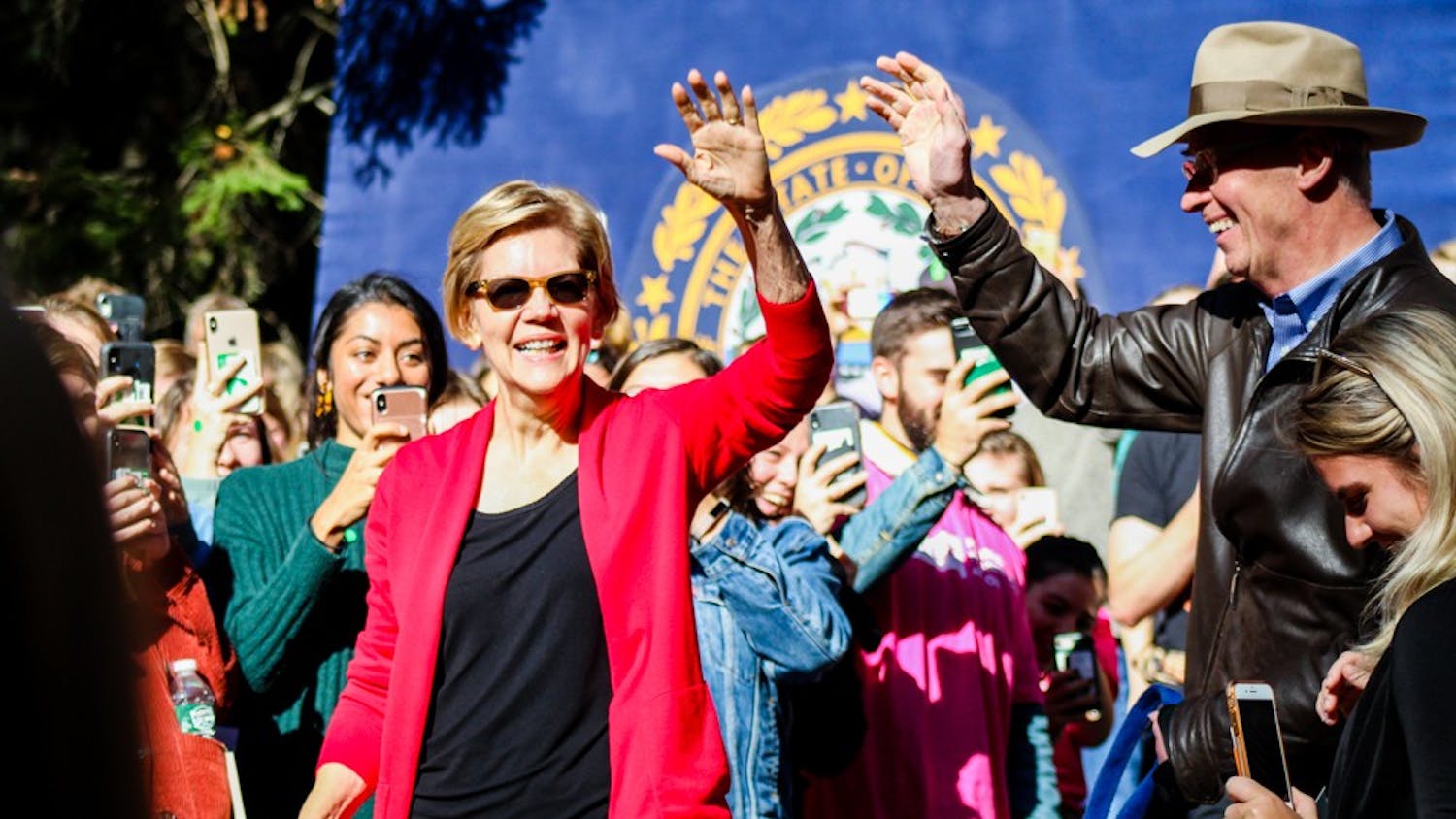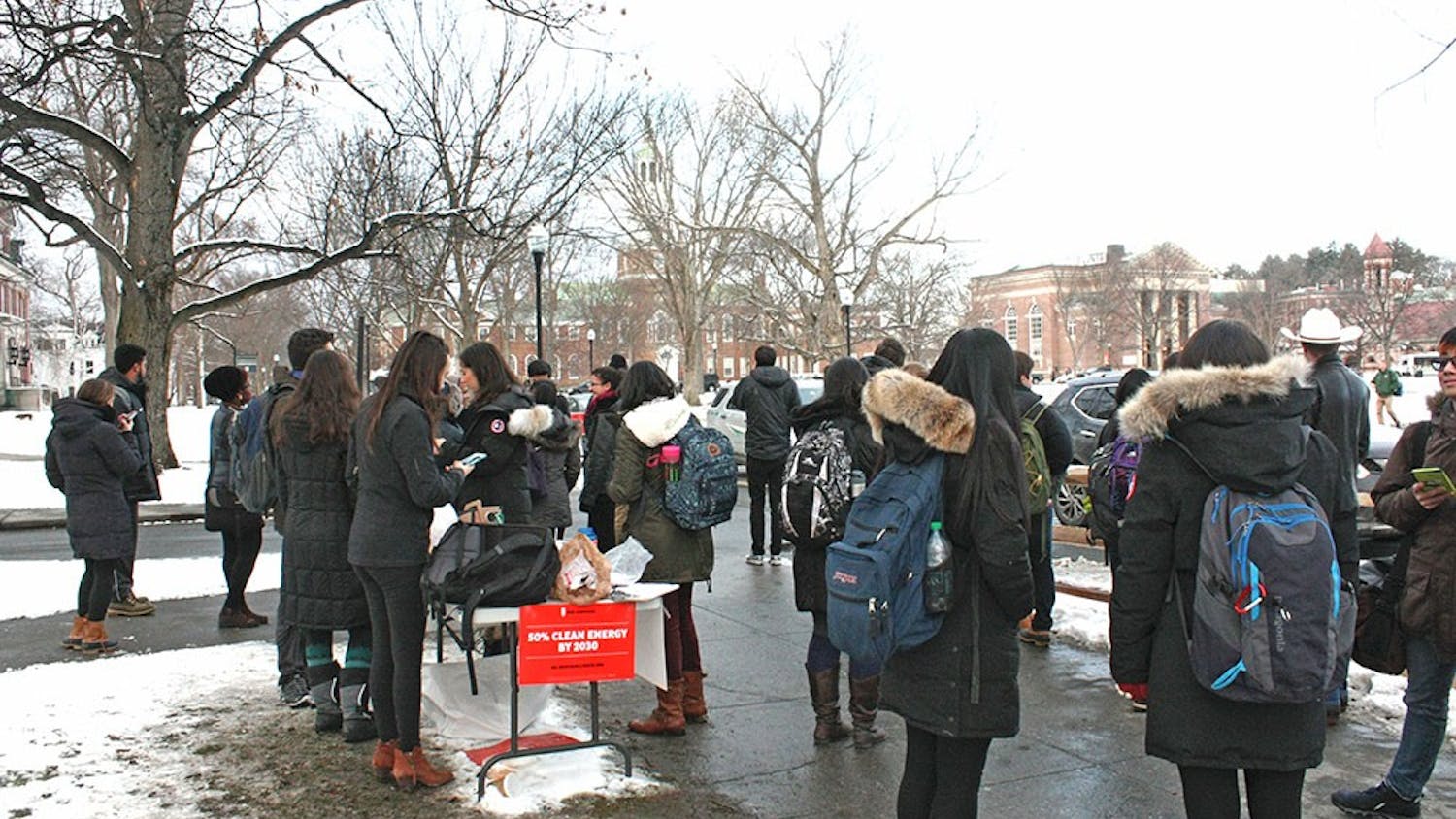As the New Hampshire primary approaches, students volunteer with their favorite candidates, register to vote and attend campaign events. With all the buzz about the first-in-the-nation primary, three political experts — Ned Helms, Tom Rath ’67 and Andrew Smith — discussed the political phenomenon during a panel titled “Polls, Pundits and Predictions: Sizing Up the NH Presidential Primary Race” hosted by the Rockefeller Center on Wednesday.
Helms, a former commissioner of the Department of Health and Human Services for New Hampshire and chairman of the state Democratic Party, co-chaired Obama’s New Hampshire campaign in 2008. He has endorsed Joe Biden for this election cycle. Rath has been involved in eight campaigns, was a delegate to the last nine Republican National Conventions and was the New Hampshire attorney general from 1978 to 1980. Smith is the director of the University of New Hampshire Survey Center and also teaches political science at UNH.
The event allowed the three to discuss their experiences in New Hampshire politics, offer advice to voters trying to make sense of the whirlwind of events that will come in the next weeks and predict the likely outcomes in the early primary states. The three spoke with The Dartmouth before the event to offer insights on the upcoming election.
According to Helms, UNH, Keene State and Dartmouth are a “huge resource” for campaigns that send students to canvas voters. Helms noted that the opportunities that come with these campaigns offer students a chance to have an impact on future governing.
“This is the only place you can be, while you’re still in college or a year out, that you can change the world,” Helms said. “This is probably gonna be the closest job you have to changing the world in your whole life, and you’re doing it now.”
Smith added that students from across the country come to New Hampshire to work on the primary. He said that he knows of five colleges this year that brought students to New Hampshire to learn about the primary.
“They just want to be part of the action,” Smith said.
Rath emphasized the importance of the tradition of New Hampshire residents meeting their politicians directly before an election.
“The essential validation for the New Hampshire primary is it brings the race to very human dimensions,” Rath said. “Meeting people is still really important.”
In order to coordinate that kind of connection with voters, campaigns need to aggressively organize in the state.
Rath talked about the tradition of New Hampshire residents participating in politics at a civic and a statewide level, pointing out that “we’re never more than about three months away from an election.” This then sets the “groundwork” for more political participation.
When defending against claims that a small state such as New Hampshire should not “decide” an election, Rath said that New Hampshire winnows the field and allows voters to have a more intimate look at the candidates, outside of ad campaigns and debate performances.
“We don’t decide it,” Rath said. “We thin the field, we give people chances and the coverage that New Hampshire receives because of when we are helps other people in other places see candidates in human situations.”
New Hampshire receives a great deal of media coverage during the primary, which Smith said he believes makes winning in the state a key to success for a campaign.
“You get so much publicity from winning or doing better than you should — you look at it like a half a billion dollars of positive PR coming out from here,” he said. “And if you lose, people are asking ‘Where did it go so wrong?’”
According to Smith, New Hampshire’s influence can be seen in the fact that in the modern era, candidates who have won their party’s nomination have always come either in first or second place in the New Hampshire primary.
Ellis Robinson and Vivian Dolkart of Grantham, who are both involved in Democratic politics in that town, attended the panel.
Robinson said that she appreciated the access to the candidates that comes from living in New Hampshire. Robinson previously lived in Florida, about which she said “You were lucky if you ever had a candidate come to your town.”
Dolkart also said that seeing the candidates in person is important.
“Here you can really get to see their intellect and their amazing range of knowledge, and also whether they listen or not to people who are asking questions,” Dolkart said.




